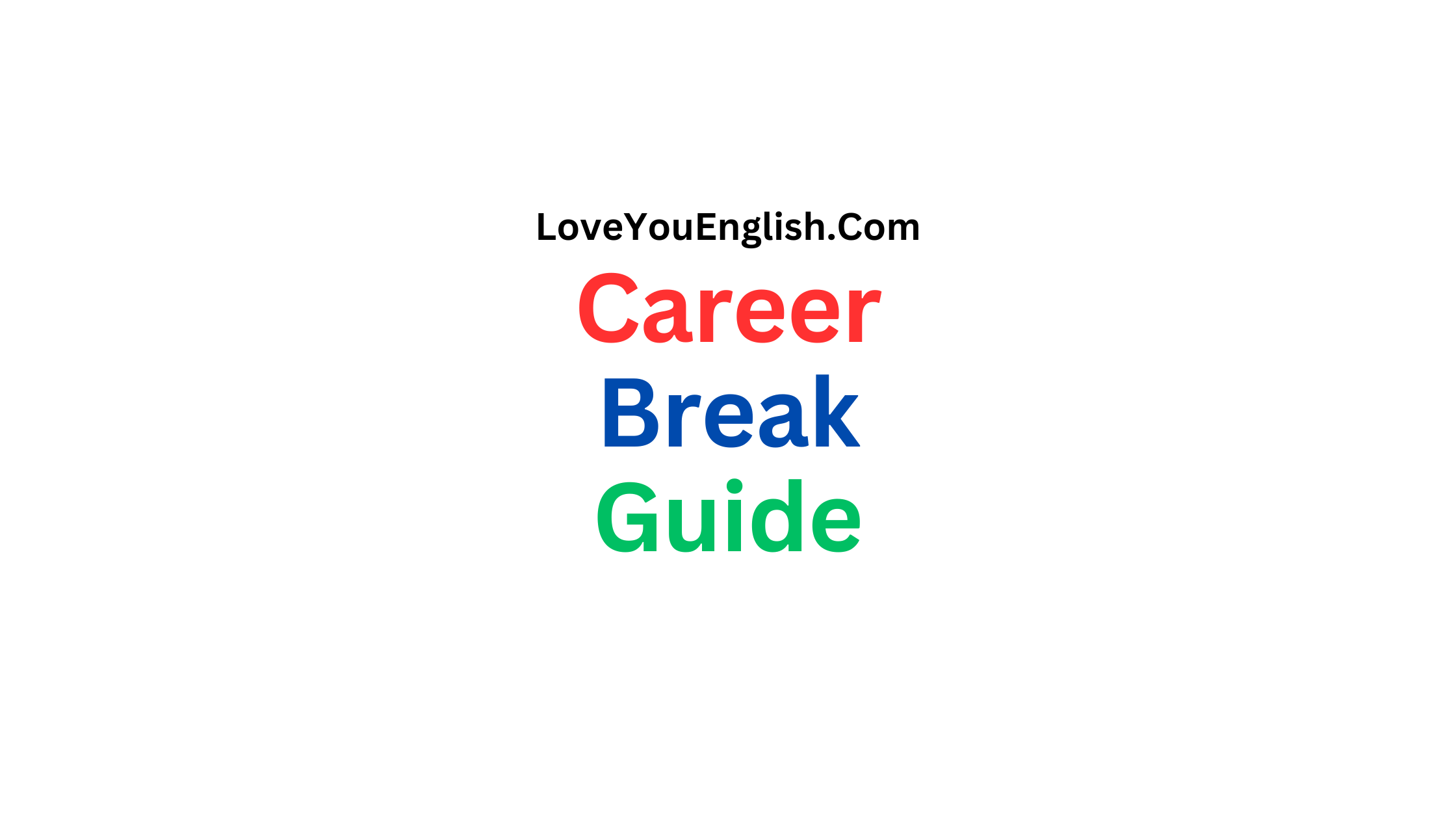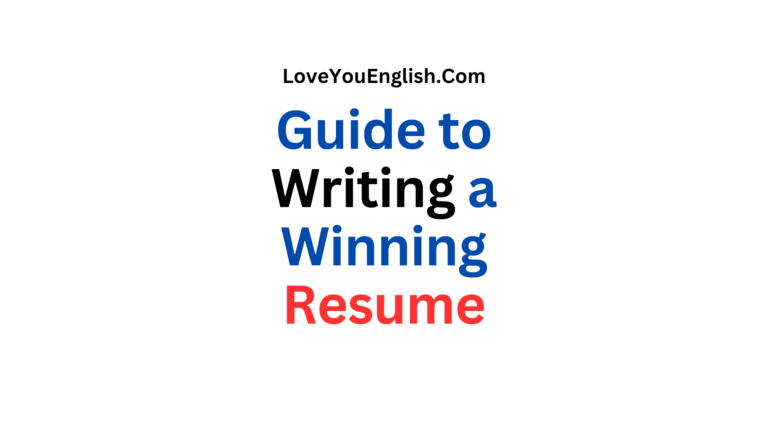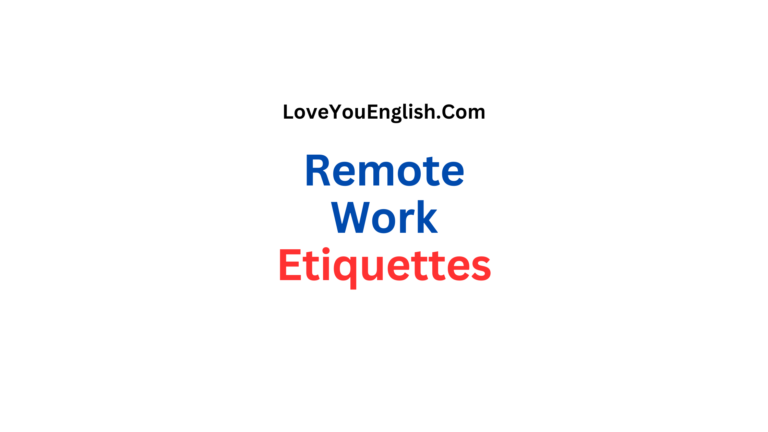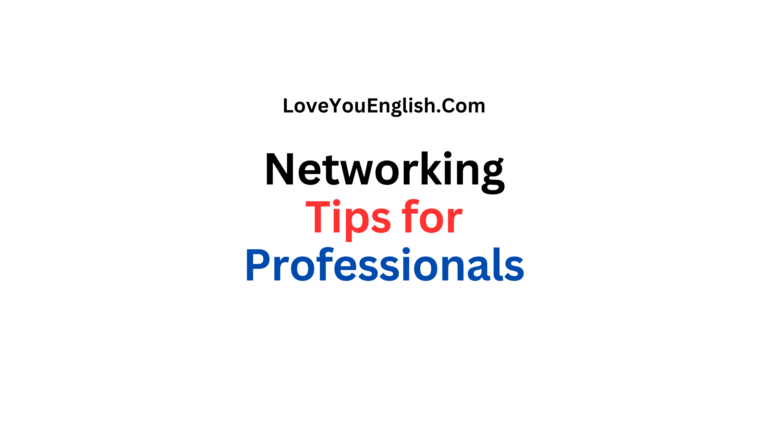Career Break Guide: Definition, Reasons and Tips
Career Break Guide: Definition, Reasons and Tips
In today’s busy work environment, taking a break from your career is no longer seen as a bad idea.
Instead, it’s now considered a smart choice for your life.
A planned career break can actually help you recharge, open up new opportunities, and give you important time to think about your goals, grow as a person, and reinvent yourself.
What Exactly is a Career Break?
A career break is a time when someone decides to take a break from their job for a while, which can last from a few months to a few years.
It’s different from just taking a vacation or a short time off because it’s a more serious and planned pause in their work life.
People might take a career break for many different reasons, whether personal or professional, and each person’s situation and goals are different.
Common Motivations for Taking a Career Break
Personal Development and Growth
Taking a break from your career isn’t just about stepping back; it’s also about moving forward towards something important.
Many people use this time to follow their interests, learn new things, or have life-changing experiences that regular jobs might not allow.
Whether it’s picking up a new language, going back to school, or diving into creative hobbies, a career break can really help you grow as a person.
Mental Health and Burnout Recovery
Today’s jobs can be super stressful, which can lead to burnout.
A career break gives you a chance to take a step back, heal, and reconnect with what really matters to you and your career goals.
It’s a perfect time to take a break from the daily grind and focus on your mental and emotional health.
Family and Caregiving Responsibilities
Life keeps going, even when you’re trying to advance your career.
Many people take breaks to look after their kids, help their aging parents, or deal with big family changes.
These breaks show how personal, and work responsibilities are often connected.
Travel and Global Experiences
For some, a career break is a chance to travel the world, experience different cultures, and gain new perspectives.
Traveling for an extended time can teach you things and help you grow in ways that regular job training just can’t.
Entrepreneurial Exploration
Some people use their career breaks to explore starting their own business, work on a new idea, or shift to being self-employed.
This time allows them to focus on their personal projects without the stress of a regular job hanging over them.
Preparing for a Successful Career Break
Deciding to take a break from your career is a big choice and shouldn’t be taken lightly.
To make it work, you need to plan ahead, get your finances in order, and think about how to stay connected to your job field.
Financial Planning
Create a Strong Emergency Fund
Before taking a break from your career, it’s important to build a solid financial safety net.
Try to save enough money to cover your living costs for the entire time you’ll be off work, plus some extra for any surprises that might come up.
Look for Other Ways to Make Money
Think about doing part-time jobs, freelance work, or finding ways to earn passive income that can help support you while you’re on your break.
Websites for freelancers, consulting gigs, and online teaching can give you flexible ways to earn cash.
Check Your Health and Insurance Needs
Make sure you have health insurance coverage and know how taking a break could affect your long-term financial plans, like retirement savings and insurance benefits.
Keep Your Professional Connections
Stay in touch with your coworkers, industry groups, and professional organizations.
Networking regularly, even when you’re not working, can help you keep important relationships and open doors for future job opportunities.
Keep Learning
Use online courses, webinars, and professional development programs to stay updated on your skills.
Many of these options are flexible and affordable, making it easier to continue your education.
Keep a Record of Your Journey
Write down your experiences, skills you’ve gained, and personal growth during your break.
These notes can be valuable when you’re ready to return to work and want to share your story.
Facing Possible Challenges
Even though taking a break from your career can be really beneficial, it can also come with some difficulties.
Knowing what these challenges might be can help you come up with ways to handle them.
Concerns About Going Back to Work
Explaining Employment Gaps Be ready to talk about your career break in a positive way.
Think of it as a time for growth, learning new things, and working on yourself instead of just a time off.
Keeping Skills Up to Date
Since technology and industries change quickly, it’s important to stay updated on new trends in your field and actively work on improving your skills.
Understanding Salary Changes
Be realistic about how your break might affect your salary.
While some breaks can lead to better pay later, others might mean starting with a lower salary at first.
Making the Most of Your Career Break
Set Specific Goals
Make sure to have clear goals for your career break.
Whether they are personal, professional, or a mix of both, having specific goals can help keep you focused and motivated.
Be Open to New Experiences
Stay open to unexpected chances. Sometimes, the best lessons come from experiences you didn’t plan for.
Reflect on Yourself
Take time to think about your goals and growth.
You can use journaling, meditation, or even talk to a coach to help you understand what you really want in your career and life.
How Career Breaks Changed Lives
Every career break is different, but many people have used this time to change their lives and find more satisfying jobs.
For example, some tech workers have moved into social entrepreneurship, while corporate leaders have become teachers.
These breaks can lead to amazing changes both personally and professionally.
Conclusion
Taking a career break doesn’t mean you’re giving up on your job; it’s actually a way to make it better.
It’s a chance to step back, learn new things, and reconnect with what really matters to you in your work and life.
The important thing is to plan your break with purpose, be ready for new experiences, and keep a positive attitude.
This way, you can turn what might seem like a setback into a great story of growth and change.
Final Tips for Those Considering a Career Break
Remember, your career isn’t just a straight line; it’s a changing journey.
Taking a well-thought-out break could be the best choice you ever make for your career.







